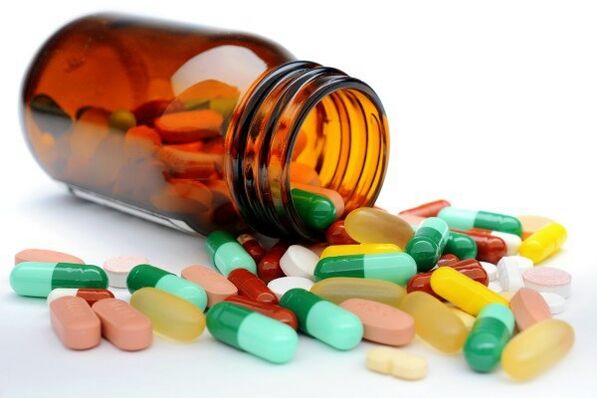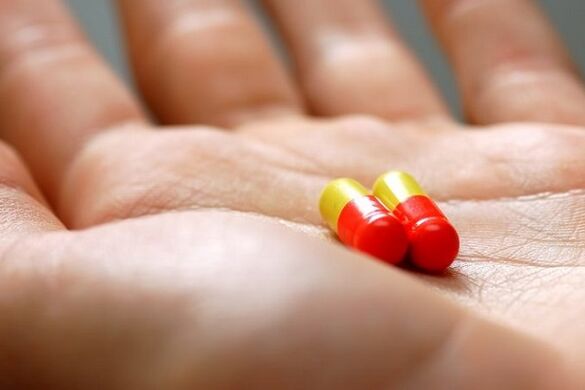Problems with prostatitis should not go unnoticed and properly treated. The body alone cannot cope with such a disease. The complex of measures to promote inflammation of the prostate gland involves the treatment of prostatitis with tablets.

Tablets may have general or targeted effects. It is not worth choosing from a wide range of pharmacies alone. It is very likely that not only will we achieve the desired result, but we will also get side effects.
It is better to look for a doctor who is experienced in prostate health and follows your instructions. This will save you money on your home and get faster results. After all, the main feature that distinguishes the treatment of prostatitis with antibiotics and pills is precisely the responsible and reasonable approach to the issue.
Taking tablets for prostatitis
Examining the results of laboratory tests and direct examination of the prostate (and possibly the entire genitourinary system), the doctor prescribes appropriate therapy.
The integrated approach is practiced more often. Depending on the stage of the disease, the following medicines may be prescribed:
- Analgesics;
- Antispasmodics;
- Anti-inflammatory;
- Antibiotics;
- Antiviral drugs.
- Alpha blockers.
Often, the practitioner will need to combine known drugs to achieve results in the shortest possible time. The dosage is chosen individually. It is influenced not only by the results of the clinical trial, but also by age characteristics, lifestyle, the possibility or lack of inpatient treatment.

It should be borne in mind that you must forget to use alcoholic beverages during treatment. And this is not only true for antibiotics. Any drug, combined with libathion treatment, loses its effectiveness and can lead to side effects due to the high load on the liver.
Interruption of the therapeutic course should not be allowed. The more closely you follow your doctor’s instructions, the more effective the therapy will be. If the patient does not initially have a significant amount for treatment, they should immediately discuss the choice of medication with the urologist.
The modern pharmacological market has a wide range of generics (cheaper analogues of patented drugs) that do not differ in their effectiveness from advertised tablets.
Popular pills for prostatitis
- fluoroquinolone based;
- contains penicillin;
- macrolides;
- with tetracyclines.
Treatment of prostatitis with tablets
When treating patients with symptoms of severe pain, the doctor will first of all prescribe painkillers that can alleviate the pain. These are usually painkillers. Many of them not only contribute to pain relief but also relieve inflammation. Most often, this picture of appointments is characteristic of acute prostatitis.
If acute prostatitis is the most important and not the result of an untreated chronic form, then anti-inflammatory drugs are quite capable of completely eradicating the disease at an early stage.

They are likely to be prescribed in combination with antibiotics or antivirals. However, the key to successful treatment of prostatitis is to suppress the development of the inflammatory process.
Inflammation of the prostate gland is often accompanied by painful contraction of the muscle tissue that makes up the prostate. In this case, antispasmodic tablets are prescribed. They improve blood circulation and help relax muscles, which reduces pain.
Note!Urinary problems require medications that reduce tension in the urethra and bladder. Muscle relaxants have a good effect. They prevent the muscles from contracting painfully and make it much easier to walk to the toilet.
Treatment of chronic prostatitis with tablets may also require the use of alpha-blockers. These drugs are long-term and are prescribed for urinary difficulties and urinary retention. Such therapy helps to control the process of enlargement of the prostate gland and significantly reduces the intensity of the onset of painful symptoms.
The bacterial form of prostatitis involves the mandatory treatment of prostatitis with tablets, which can have a targeted effect on the fight against pathogenic microorganisms.
Antibiotics can be administered intramuscularly as an inpatient. But they are more often prescribed in the form of tablets for internal use. This is convenient for those who cannot afford long sick leave.
Conclusion
Antibiotics are an integral part of the treatment of acute prostatitis. The chronic inflammatory process of the prostate gland caused by a bacterial infection also includes antibiotic therapy.



























